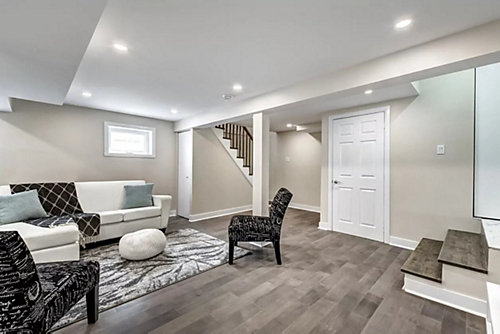Top Reasons Why Your Basement Is Cold

The Short Answer Is: A basement often gets cold primarily due to its location underground, which exposes it to lower outdoor temperatures and lacks sufficient insulation. Moisture, drafts, inadequate sealing, and poor ventilation contribute to the chill. To warm up a cold basement, consider insulating walls and floors, sealing any gaps or cracks to prevent drafts, and adding supplemental heating sources such as space heaters or radiant floor heating. Properly maintaining HVAC systems and improving ventilation can also help regulate temperature and humidity levels in the space.
Spending time in your basement during the winter months can be downright chilly. Most homes, even those with finished basements, are significantly cooler than other areas. This can make using your basement during the colder months overly expensive to keep warm. There are three main reasons for this.
Reason 1: Moisture
Basements tend to be damper than other places in your house. This is often caused by water seeping through the concrete foundation, rising from a dirt floor, or simply because of poor ventilation. This higher level of moisture in the air will end up making you feel much colder than the ambient air temperature. This is because high humidity tends to conduct more heat away from your body than dry air. While you can try to reduce the level of moisture in your basement by increasing ventilation or sealing cracks, the easiest solution is to use a dehumidifier to remove excess water from the air.
Reason 2: Hot Air Rises
Everyone knows that hot air rises, or more specifically, since cold air is heavier than hot air, as it starts to settle, it displaces warmer air. Given the fact that your basement is the lowest part of your home, it naturally will be the coolest part. This is true even if you have a finished basement with proper insulation since the cause of the issue has nothing to do with outside air seeping inside. An easy fix for this situation is to use a fan to push cooler air upwards. Try switching your furnace fan on, or if you don’t have a one, a box fan at the top of the basement stair help remove some colder air.
Basements tend to be damper than other places in your house. This is often caused by water seeping through the concrete foundation, rising from a dirt floor, or simply because of poor ventilation. This higher level of moisture in the air will end up making you feel much colder than the ambient air temperature.
Reason 3: Lack of Direct Sunlight
Even in the winter, on a sunny day, direct sunlight through your windows can raise your home’s temperature as much as ten degrees. But, of course, your basement does receive any direct sunlight. Unfortunately, this means besides your basement not benefiting from the heat of the sun, the higher air temperature upstairs will prevent your thermostats from triggering your heater from running. While this saves you money on your utility bill, it does make your basement extra chilly. If you plan to leave your home for an extended period over the winter, remember your basement temperature can be much cooler than upstairs, and set your thermostat to compensate to avoid your pipes from freezing.
Are you looking for more ways to keep your basement from feeling too frigid this winter? Call Buckeye Heating, Cooling & Plumbing at (614) 647-5306 to discover how adding a heating zone or perform heating system maintenance can help to keep your basement toasty warm.